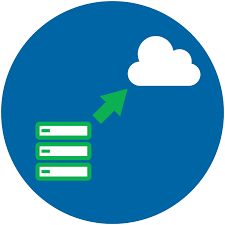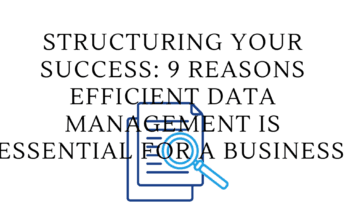Data loss can be a crippling experience for businesses of all sizes. In the past, companies had to rely on expensive and time-consuming measures like tape backup and offsite storage to protect their data.
But now there’s a better solution: Disaster Recovery as a Service, or DRaaS. DRaaS allows businesses to backup their data to the cloud so that if disaster strikes, they can quickly and easily recover it without worrying about losing critical information or spending hours setting up a new system.
Disaster recovery is one of the most important aspects of any business continuity plan. By incorporating DRaaS into business practices, a company can rest assured that its data will be safe no matter what happens. Here are a few ways that DRaaS can help companies avoid data loss:
Contents
Automated Backups
Any company that relies on data to do business knows how important it is to protect that data. Data loss can lead to lost productivity, lost customers, and even legal problems. That’s where DRaaS comes in.
In the event of a power outage, hardware failure, or natural disaster, a business can rest assured that its data is safe and sound. And because the backups are stored offsite, the company doesn’t have to worry about them being destroyed along with the primary data center.
Remote Disaster Recovery
Another great benefit of DRaaS is the ability to quickly and easily recover from a disaster. For example, in the event of a significant system failover, businesses can restore data from the cloud without investing in expensive and time-consuming measures.

Doing this can save a tremendous amount of time and money and reduce disruption to normal business operations. In addition, DRaaS can also be used to quickly and easily recover from ransomware attacks, making it an invaluable tool for companies that want to protect their data.
Scalable Solutions
DRaaS solutions are designed with scalability in mind. Scalability means businesses can easily adjust their DRaaS plan to meet their changing needs. For example, a company can easily increase or decrease its data storage capacity as needed, ensuring that it always has enough space to back up its essential files.
Additionally, DRaaS solutions can be customized to suit a company’s specific needs, so businesses don’t have to worry about being limited in terms of capabilities.
Cost Savings
Saving money is always a top priority for businesses, which is why DRaaS can be such an attractive option. Instead of investing in expensive hardware and storage solutions, companies can use DRaaS to backup their data without making a considerable investment.
In addition, the cost of a disaster recovery plan is significantly reduced since businesses don’t have to worry about setting up a new system or paying for offsite storage. Not only does this save money, but it also reduces the time needed to get back up and running after a disaster.
Improved Security
Data security is more important than ever, and DRaaS can help companies protect their data. By utilizing cloud-based backups, businesses can securely store their data without worrying about it being stolen or compromised.
For example, most DRaaS solutions use encryption to protect data, and many offer granular control over access to the backup system. While this isn’t a replacement for proper security measures, it does provide another layer of protection that can help keep business data safe.
Increased Compliance
Regulatory compliance is becoming increasingly important for businesses, which is why DRaaS can be such a valuable asset. By using DRaaS, companies can easily meet the various data security and privacy requirements set by regulatory bodies.
Additionally, many DRaaS solutions are designed to meet the specific needs of each business, ensuring that the company is always in compliance with the latest regulations, even when those regulations change.
Increased Efficiency
DRaaS can help improve overall efficiency by allowing businesses to quickly and easily recover data after a disaster. By accessing their data in the cloud, companies can quickly and easily restore lost or damaged files without manually restoring them, saving time and reducing downtime and disruption to normal business operations.
For example, suppose a business loses access to its primary data center. In that case, the company can quickly restore its data from the cloud instead of waiting for another system to be set up, relieving stress and extra work for a company.
The Bottom Line
DRaaS can be an invaluable tool for businesses that want to protect their data and reduce downtime after a disaster. By leveraging cloud-based backups, companies can easily restore their data without investing in expensive hardware or storage solutions.
DRaaS can also help businesses meet compliance requirements and improve overall efficiency. For these reasons, DRaaS is quickly becoming a must-have for companies that want to ensure their data is safe and secure.







